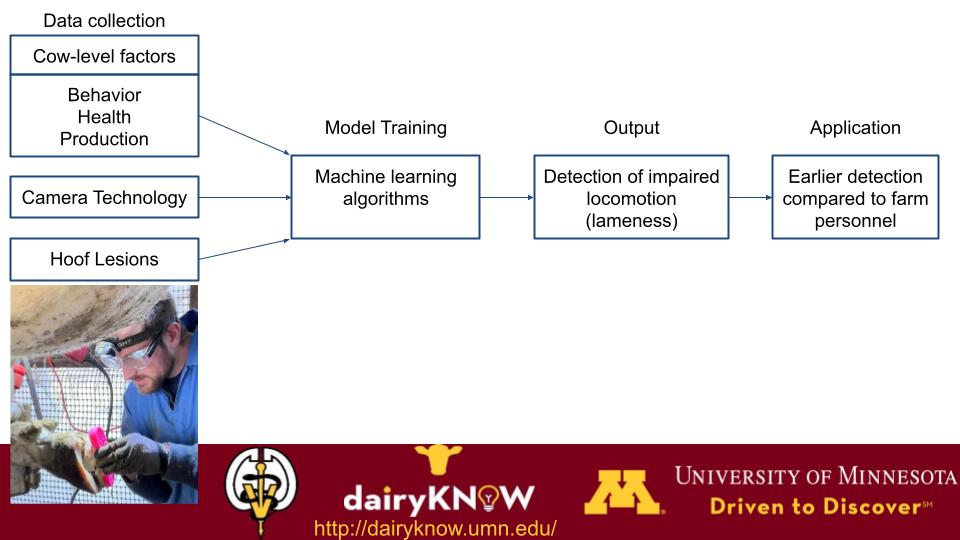Lameness prevalence is a key factor in the FARM program, an assessment program that assures appropriate and responsible dairy cow management. Currently, impaired locomotion (lameness) is determined by farm personnel, who typically identify this impairment in its later, more severe stages.
PhD student Drew Swartz (Veterinary Medicine program, Veterinary Population Medicine ), in a project called “Effectiveness and producers perceptions of camera-based technology detecting early stages of lameness in dairy cows,” is aiming to evaluate a system that integrates camera-based vision and artificial intelligence to assess the locomotion of dairy cows. The project will then explore the impact of integrating cow-level factors when training supervised machine learning algorithms for early detection of cows with compared to human-based observation. These cow-level factors encompass a wide range of variables, which include aspects of the cow's health, behavior, and production data. The researchers want to determine if the current camera technology, coupled with these cow-level factors, can reliably differentiate between healthy cows and those with lameness caused by hoof lesions. This approach aims to improve the accuracy and effectiveness of early detection. This research not only addresses a critical aspect of animal welfare but also highlights the potential of cutting-edge technology in the dairy industry to reduce lameness prevalence. Findings will contribute to the ongoing dialogue about the integration of AI and computer vision in livestock management,potentially revolutionizing the way we care for and monitor the health of dairy cows.
Some funding for this project was provided by a DSI-MnDRIVE PhD Graduate Assistantship. The DSI-MnDRIVE Graduate Assistantship program supports U of M PhD candidates pursuing research at the intersection of data science and any of the five MnDRIVE areas:
- Robotics
- Global Food
- Environment
- Conditions
- Cancer Clinical Trials
Projects in this program must align with one of the Data Science Tracks:
- Foundational Data Science
- Digital Health and Personalized Health Care Delivery
This project is part of the Global Food MnDRIVE area and the Foundational Data Sciences track. See the complete list of the RC-MnDRIVE Graduate Assistantships.
